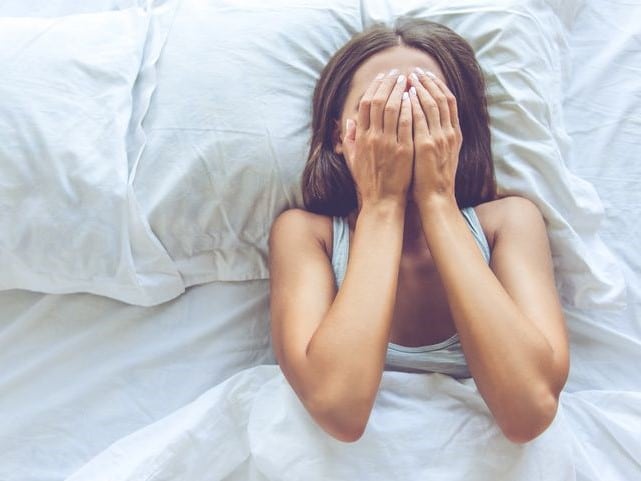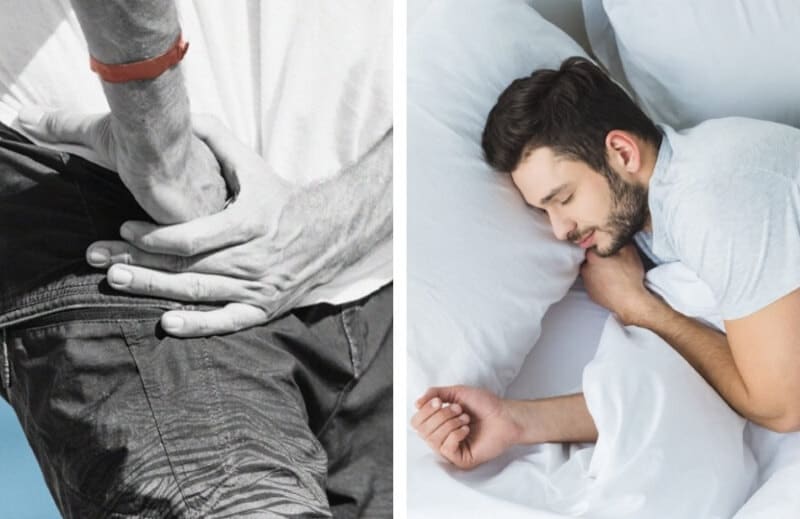

Have you ever woken up to a bloody pillow because you had a nosebleed during sleep? Has this happened more than once, leaving you somewhat concerned? This might leave you wondering, “what causes nose bleeding when you are asleep?” Most people will suffer from one or two nosebleeds in their lifetime. Some are caused by external factors in the environment, and others may be the cause of an underlying health issue. How do you know when your nose bleed is a cause of concern? Keep reading for some essential information regarding nosebleeds, as well as a few tips on how to deal with them!
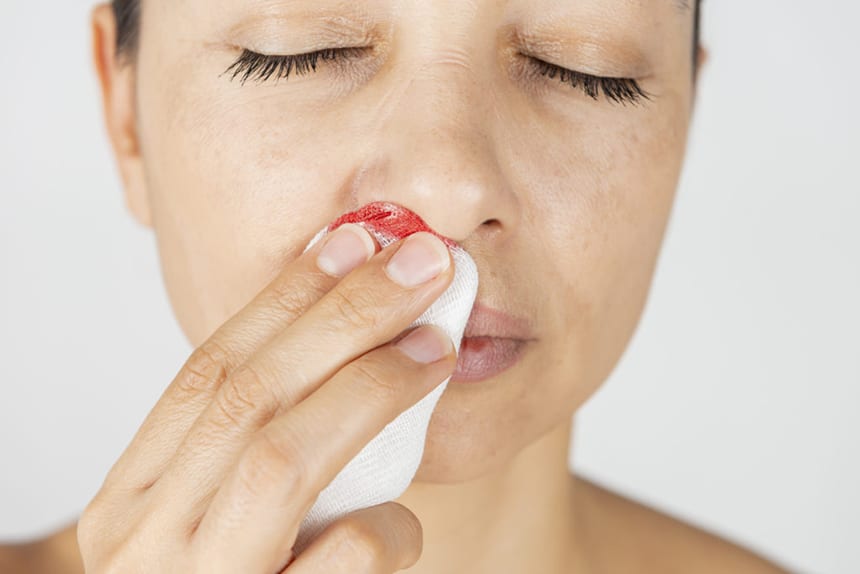
Epistaxis, or nosebleeds as they’re commonly called, are quite common and usually not cause for concern.
When the inner tissue inside your nose is damaged, blood either runs down your throat or streams out your nostrils and down your face. The good news is most nosebleeds can effectively be dealt with at home.
Depending on the cause, nosebleeds can happen at any time of the day or night. Nocturnal nosebleeds can be slightly more alarming because waking up with a bloody face or pillow can give you quite a fright!
Understanding what causes nosebleeds during sleep will give you some idea about how to deal with them. If the cause is external, you might be able to avoid them altogether by changing a few things in your environment. Read on for the most common reasons leading to nocturnal nosebleeds.
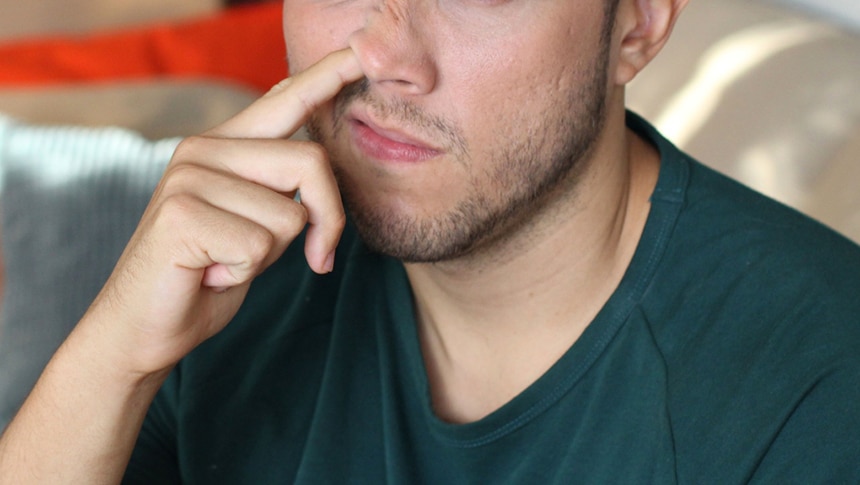
Your mother probably spent a great deal of your childhood telling you to leave your nose alone. She undoubtedly told you to stop picking it, touching it, and just fiddling with it in general. Sound familiar?
Not surprisingly, nose picking is the number one cause of nosebleeds. This is because fingers are ideal for tearing and hurting the thin tissues inside your nose. Aside from leaving your nose alone before the bleed, doctors warn against picking after a nosebleed.
If you primarily experience nose bleeds during the cooler winter months, it could be as a result of the cold, dry air in your environment. Colder temperatures lead to drier air which in turn dries out the tissues in your nasal cavity. This can often lead to them rupturing and bleeding.
If you live in an area prone to high volumes of air pollution, the type of impurities in the air could be the cause of your nosebleeds. Certain pollutants irritate the nasal lining tissue, which in turn leads to tearing and bleeding.
Air pollution is one of the most common causes of smaller children suffering from nosebleeds. People living close to industrial areas are more at risk.

It’s not uncommon for people suffering from seasonal allergies Trusted Source Seasonal Allergies: Symptoms, Causes and Treatment Nearly 8 percent of Americans experience seasonal allergies. Seasonal allergies are less common in winter, but it’s possible to experience allergic rhinitis year-round. Different plants emit pollen at different times of year. www.healthline.com to experience nosebleeds. Sometimes, regular pollen or dander allergies cause you to blow your nose harder. This, in turn, can tear the lining inside your nose and cause bleeding. Another cause of allergens in your sleeping environment could be your pillow or mattress. Ensure both are allergen-free.
Nosebleeds can also be a side effect of medication or medical treatments. If you develop nosebleeds at the same time as you start a new course of medication, be sure to mention this to your doctor. There is a host of different medications that could have nosebleeds as a side effect. There are also medications that could make a nosebleed appear much worse than it actually is. Some of these include:
Always tell your doctor exactly what medications you have been taking. This includes over-the-counter drugs as well as any natural alternatives or saline irrigations Trusted Source Neti Pot, Nasal Irrigation Pros and Cons Several different types of products can be used for nasal irrigation. The most basic are a bulb syringe, squeeze bottle, or neti pot. With these devices, the user manually pours or sprays a mixture of salt and water into the nostril. The fluid flows through the nasal cavity and into the other nostril. More high-tech nasal irrigation systems propel the solution into the nose, allowing the user to control the spray and pressure. www.webmd.com you might have done.
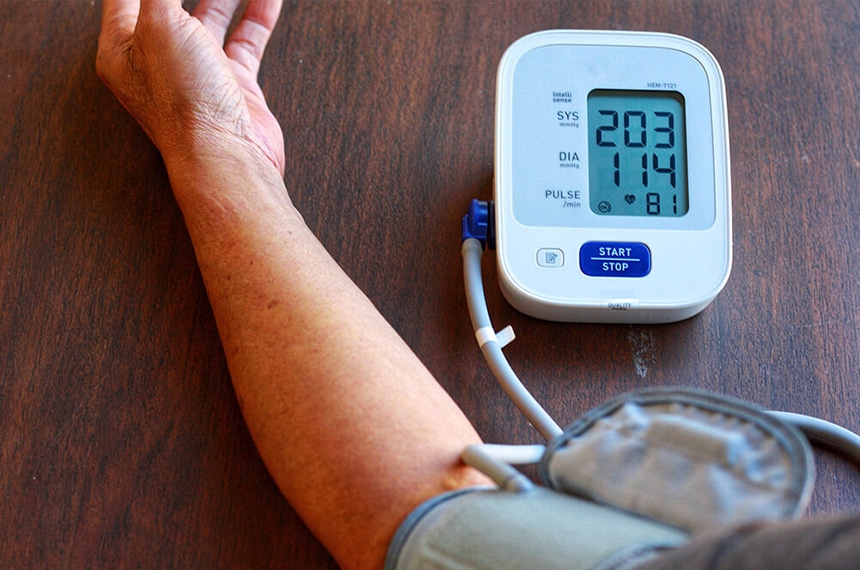
It’s also possible for nosebleeds to stem from underlying illnesses. However, this isn’t a given, so don’t panic! Not every nosebleed indicates something sinister. Again, discuss the situation with your doctor.
Some underlying illnesses that might contribute to your nosebleeds include the following:
Children between the ages of 2 and 10 experience nosebleeds more commonly than older children. On the other hand, adults above the age of 65 are at greater risk of suffering from nosebleeds caused by external factors.
Research has shown that nosebleeds are also more prevalent in people who smoke and drink excessively. This is predominantly because the tissue linings in their noses are weakened due to inflammation caused by smoking.
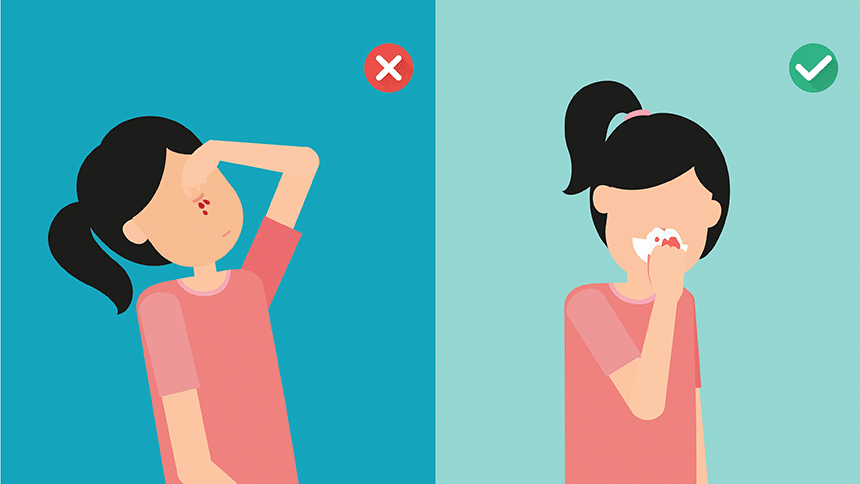
Everyone has their own remedy for dealing with nose bleeds. Some might work better than others. One thing you should never do is just leave it and “hope” it stops on its own. One of the most effective ways to stop a nosebleed is listed in a few easy to follow steps:
If you suffer from the occasional nocturnal nosebleeds, the good news is, there are a few things you can do about it. Changing a few things in your environment might go a long way to providing your nose with some much-needed relief. Read on to see what these tips are.
Aside from picking, excessive blowing is another common cause of nocturnal nosebleeds. Be gentle with your nose! Blow gently, and if you suffer from a blocked nose, use a saline spray to aid in rinsing your nose.
Make a mixture of warm water and eucalyptus essential oil Trusted Source Get rid of your blocked nose naturally with eucalyptus oil If you want to breathe free, then all you need to do is take steam daily with a few drops of eucalyptus oil. www.healthshots.com in a glass or steel bowl. Place a towel over your head and the bowl and breathe in the steam. Just make sure it’s not too hot that you burn. This is a natural way to loosen the mucus in your nasal cavities.
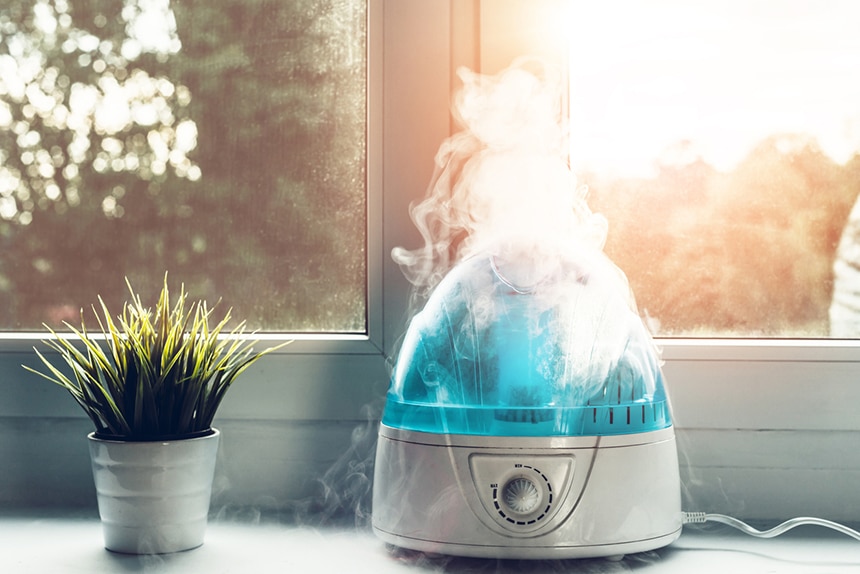
Sleeping environments in dry areas can benefit from using a mist humidifier. This is especially helpful in cooler months where indoor heating dries out the air. Always ensure your sleeping environment is the best temperature to prevent the air from drying out.
If your nosebleeds are caused by excessively dry nostrils and nasal cavities, you might need to invest in a quality saline solution. One of the more popular options to consider is Vicks Sinex Saline Nasal Spray.
Since this saline solution is drug-free, it’s safe for everyday use and can be used as often as needed. It instantly clears nasal passages of allergens, dust, and irritants. It also keeps the nasal area moist to prevent bleeding from drying.
If allergies appear to be the main culprit for your nosebleeds, you can work toward reducing or removing the allergens from your bedroom. For instance, what is your pillow made of?
If your pillow could be the reason for your allergies, it might be time to invest in a hypoallergenic pillow. An example of this is the AllerEase Compressed Body Pillow. With advanced allergy protection, the AllerEase has a tightly woven fabric to prevent unhealthy household particles from gathering on your pillow.
If you suspect your medication is the cause of your nosebleeds, don’t make any rash decisions to quit or change any medication without the advice of your doctor. Your doctor will recommend an alternative. You could also consider natural remedies for non-chronic ailments.
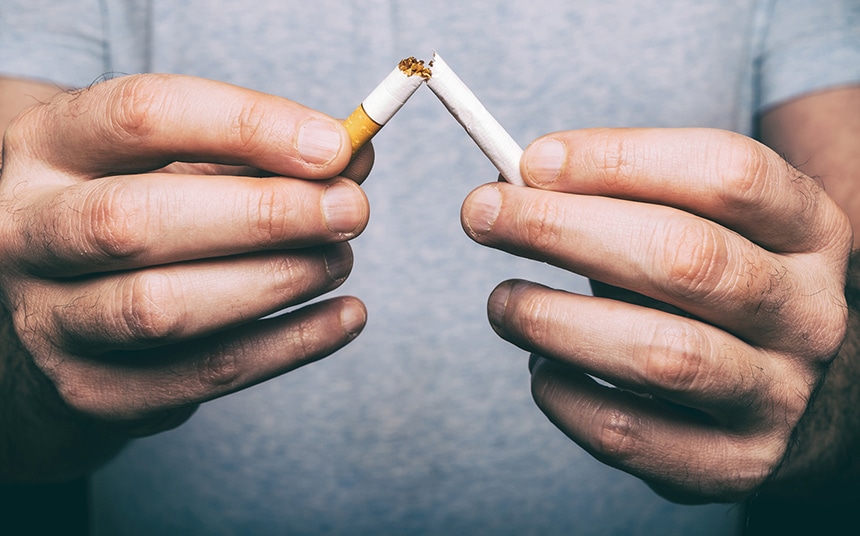
Aside from a host of other benefits, giving up smoking will reverse the inflammation in your nasal cavities. Speak to your doctor about programs and methods Trusted Source How to Quit Smoking - HelpGuide.org To successfully stop smoking, you’ll need to address both the addiction and the habits and routines that go along with it. But it can be done. With the right support and quit plan, any smoker can kick the addiction—even if you’ve tried and failed multiple times before. www.helpguide.org to assist you in quitting the habit that might be contributing to your nosebleeds.
Everyone has the occasional nosebleed. If your nosebleeds are few and far between, there’s no need to panic and rush off to the doctor when it happens. However, some nosebleeds can be underlying symptoms of something else. Visit your doctor if you experience any of the symptoms below.
Some nosebleeds can be managed by changing a few habits and by ridding your environment of allergens. Investing in a quality saline solution or humidifier will go a long way to preventing dry nasal cavities. By following our tips, you’ll no longer be left wondering what causes nosebleeds when you are asleep!



